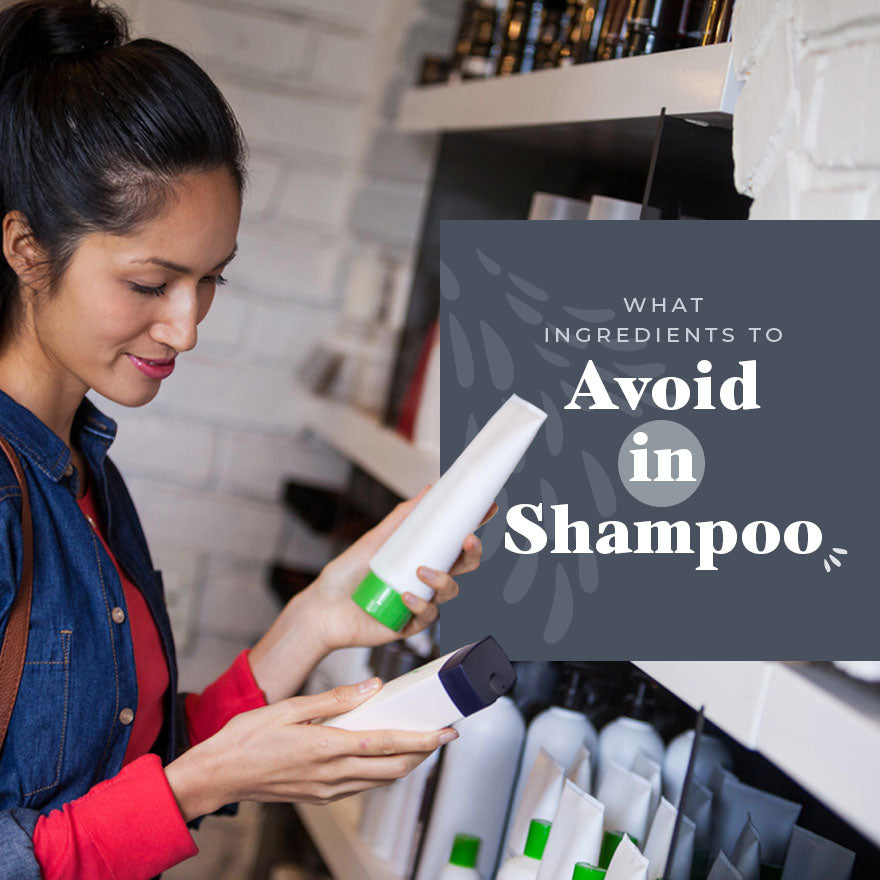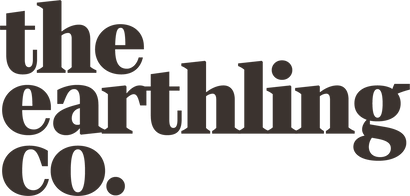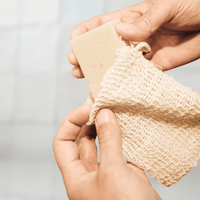
Nobody wants to spend their time researching what ingredients to avoid in shampoo. Nor do they want to spend 20 minutes standing in the hair care aisle, scouring the ingredients on product labels in search of keywords indicating that the product may be harmful to their health. These tasks are time-consuming and mentally exhausting, but they’re also more important than you probably think. According to the nonprofit Environmental Working Group, we expose ourselves to a large swath of chemicals through our personal care products every day — on average, 168 chemicals for women and 85 for men. This exposure can accumulate over time and lead to a host of health problems, from breast cancer to reproductive disorders.
What’s more, the Food and Drug Administration (FDA) has very little power to regulate the ingredients in shampoo and other personal care products. (The federal law designed to protect consumers from ingredients in personal care products hasn’t been updated in 84 years!) That means that even ingredients with known endocrine-disrupting activities are still legal in product formulations.
Reading product labels is essential to making more informed decisions about your shampoo and other personal care products. But don’t worry — sussing out harmful ingredients in your hair care products doesn’t need to be an uphill battle. Check out our simple guide on what ingredients to avoid in shampoo and why switching to a plant-based shampoo bar may be the best hair move you ever make.

What Ingredients to Avoid in Shampoo
The next time you’re shopping for shampoo, keep your eyes out for these harmful ingredients that are often hiding in plain sight.
1. Parabens
You've probably heard of parabens before. First introduced in the 1920s, these artificial chemicals are widely used as preservatives in shampoo, conditioner and other beauty products with high water content. Their primary purpose is to prevent or slow down the growth of bacteria, fungi and yeast, all of which can make your shampoo go bad.
Unfortunately, long-term exposure to parabens may have some unsettling effects on the body. Some scientific studies have shown that parabens can cause skin irritation, disrupt hormones, negatively affect birth outcomes and increase the risk of cancer. One way to avoid parabens in your beauty routine is to opt for waterless products, like shampoo and conditioner bars.

How They’re Listed on the Label: Butylparaben, ethylparaben, methylparaben, propylparaben
2. Phthalates
Phthalates are another group of synthetic chemicals commonly found in conventional shampoo formulas. Also known as plasticizers, they’re often used to enhance the flexibility and durability of plastic. In shampoo, they act as cheap thickening agents, helping to stabilize the product and give it emulsifying properties.
Like parabens, phthalates have been linked to a worrying amount of health problems, including birth defects, increased risk of miscarriage, type 2 diabetes, thyroid disorders, asthma and delayed neurodevelopment. Some phthalates — like di (2-ethylhexyl) phthalate — are listed as probable human carcinogens by the Environmental Protection Agency.
Several states — California, Washington and Vermont — have taken steps to ban certain phthalates in children’s products. Unfortunately, phthalates in shampoos and other cosmetics remain commonplace.
How They’re Listed on the Label: Butyl benzyl phthalate, Di-n-butyl phthalate, diethyl phthalate, di-isodecyl phthalate, di-n-hexyl phthalate, fragrance*
*Sadly, plasticizers are often hidden in fragrances due to the fact that fragrances are considered trade secrets by the FDA. The Earthling Co.’s natural fragrances don’t hide any plasticizers – ours only include essential oils and natural extracts.
3. Sulfates
Sulfates are a group of detergents (also known as surfactants) that clean the dirt and oil from your scalp. They’re often used in product formulations because of their ability to create foam. These harsh cleansers are problematic for a slew of reasons, the most concerning of which is their ability to irritate the skin, mouth, eyes and lungs. Moreover, sulfates can be contaminated with 1,4-dioxane, a synthetic industrial chemical listed as a known carcinogen by several scientific agencies.
Another problem with sulfates is how they’re made. Sulfates are often derived from petroleum or palm oil, both of which are controversial for their devastating social and environmental impacts.
How They’re Listed on the Label: Sodium lauryl sulfate (SLS), sodium laureth sulfate (SLES), sodium lauryl sulfoacetate, sodium lauroyl taurate, lauroyl isethionate
![]()
4. Silicones
Few beauty ingredients spark more debate than silicones. These synthetic polymers are derived from silica, the main component of sand, and go through an energy-intensive chemical process to become silicone. Silicones are widely used in moisturizing shampoos and conditioners, thanks to their ability to give hair a sleek and shiny feel. Unfortunately, this smooth, glossy finish is only temporary and often comes with negative side effects, including product buildup and scalp problems. Silicones can also prevent vital nutrients and oil from penetrating the hair shaft, resulting in weaker, drier strands in the long run.
For naturally healthy locks, try using a silicone-free shampoo. One of the benefits of using silicone-free shampoo is that it will allow moisture to penetrate your hair shaft for an all-natural smoothness and shine.
How They’re Listed on the Label: Dimethicone, cyclomethicone, amodimethicone, phenyl trimethicone, cetearyl methicone, stearyl dimethicone, cyclopentasiloxane
5. Artificial Dyes
It’s no secret that most shampoo manufacturers use artificial coloring to make their products more appealing. Unfortunately, these pretty colors often consist of synthetic chemicals that may not be good for our health. Many artificial dyes and colors are made from coal tar (a by-product of coal processing that has been associated with cancer) and heavy metals like arsenic and lead. Additionally, artificial colors can increase the risk of irritation, breakouts and other adverse reactions.
How They’re Listed on the Label: Red 30, Red 33, Blue 1, Blue 4, Green 3, Green 5, etc.
6. Diethanolamides
Diethanolamine (DEA) is an organic chemical compound that gives many shampoos, conditioners and body washes that creamy, sudsy quality we're all familiar with. DEA also acts as a pH regulator by counteracting the acidity of other ingredients. The biggest issue with DEA and DEA-related compounds is their potential to cause cancer.
Although the FDA claims that DEA is safe and should not cause alarm in consumers, other scientific agencies — like the International Agency for Research on Cancer — have flagged DEA as “possibly carcinogenic” due to an animal-based study that found an association between DEA-related ingredients and cancer. Another animal study found that DEA may inhibit brain development in baby mice. The researchers involved in the study said that while their findings should not cause undue alarm, pregnant women may want to limit their exposure to DEA until more is known.
How They’re Listed on the Label: Diethanolamine, DEA-cetyl phosphate, DEA Oleth-3-phosphate, lauramide DEA, linoleamide MEA, myristamide DEA, oleamide DEA, stearamide MEA, TEA-lauryl sulfate, triethanolamine

7. Formaldehyde and Formaldehyde-Releasers
Formaldehyde is a colorless, strong-smelling chemical found in many building materials and household products. It's produced in small amounts by most living organisms and is best known for its preservative and anti-bacterial properties.
However, just because formaldehyde naturally occurs in the environment doesn't mean it's safe. According to the National Cancer Institute, people who are exposed to high levels of formaldehyde can experience watery eyes, wheezing, coughing and skin irritation. The effects of formaldehyde over the long-term are less well known, but some studies suggest a link between long-term formaldehyde exposure and an increased risk of cancer.
Many personal care manufacturers also use formaldehyde releasers that release low amounts of formaldehyde to prolong the product’s shelf life. Common formaldehyde releases include DMD hydantoin, methylene glycol, quaternium-15 and polyoxymethylene urea.
How They’re Listed on the Label: Formalin, formic aldehyde, methanal, methanediol, methylene glycol, methylene oxide
8. Mineral Oils
Mineral oil sounds like something that would be good for your hair, but take a deep dive into this common hair care ingredient and you'll find it's anything but. A colorless, odorless liquid, mineral oil is a by-product of gasoline. It's commonly used in shampoos and conditioners as a lubricant, helping to reduce tangles and prevent damage.
Unfortunately, that’s where the benefits of mineral oil come to an end. Like silicones, mineral oil can build up on the scalp and cause a host of problems, from itchiness and flakes to dry, lifeless hair. Exposure to mineral oil in industrial settings is also linked to an increased risk of cancer.
How They’re Listed on the Label: Paraffin, paraffin wax, liquid petrolatum, white petroleum

An Easier Way to Ditch Toxic Chemicals in Your Shampoo
We understand that dissecting your hair care product labels can be a tedious and overwhelming task. But the fact of the matter is that most shampoos are teeming with synthetic ingredients that aren’t good for you or the Earth. Many of these ingredients can pollute the Earth and accumulate in our bodies, causing short- and long-term health problems.
If you’re tired of questioning the safety and environmental impact of your shampoo, consider switching to a plant-based shampoo bar. Here are a few reasons why you’ll love sudsing up with one of our bars:
- Packed with Nourishing Ingredients – Our solid shampoo bars are jam-packed with nourishing, plant-based ingredients that help smooth hair and tame frizz without weighing hair down.
- Safe for All Hair Types – Our bars are free from sulfates, silicones, mineral oils and other bad-for-hair ingredients. So, whether you have curly, wavy or color-treated hair, you can rest easy knowing that your shampoo bar isn’t wrecking your hard-won tresses.
- Plastic-Free – Most shampoo products come in a wasteful plastic bottle, whereas The Earthling Co.’s shampoo bars are 100 percent plastic-free for a happier planet and a cleaner hair care routine. By switching to shampoo bars, you can divert up to three plastic bottles from a landfill!
- Travel-Friendly – Planning a trip? Forget about long TSA lines and leaking shampoo bottles in your luggage. With our lightweight and waterless shampoo bars, you can keep your packing hassle-free (and mess-free).

- Budget-Friendly – Who says that being sustainable has to be expensive? Shampoo bars are long-lasting, affordable and waste-free, making them a cost-effective way to help the planet without cutting into your budget. Plus, you can use every last bit of them with the help of a soap saver bag.
Note: Thanks to their sulfate-free formulas, shampoo bars may not lather as well as conventional shampoo. To work up a good lather, remember to wet your hair and your bar. For more helpful tips on how to use a shampoo bar, check out this blog post.
Knowledge Is Power
The next time you’re shopping for a new shampoo, read the product label thoroughly. Try to avoid skimming over any words, especially the ones you have a hard time pronouncing. We know it’s a lot of work, but your body will thank you in the long run.
Want to skip the hassle of finding a clean shampoo that works for your tresses? Try a shampoo and conditioner bar from The Earthling Co. Packed with botanical goodness, our plastic-free hair care products are a win-win for your hair and the planet!
Image Credits
Semanche/Shutterstock.com
Alena TS/Shutterstock.com
wavebreakmedia/Shutterstock.com
ivan_kislitsin/Shutterstock.com





